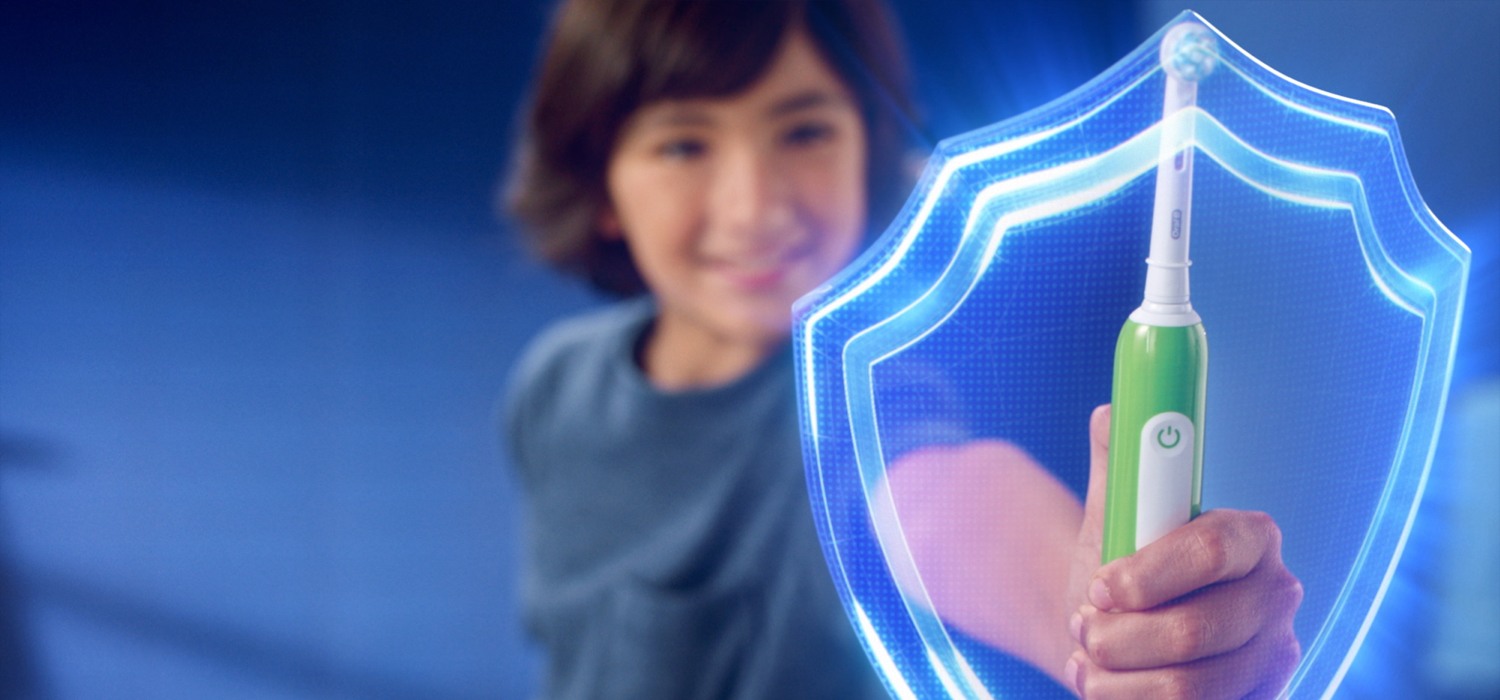Importance of Brushing: Infants to Teens

Summary
Table of Contents

This blog has been reviewed and approved by Dr Robert Lee, a dental professional of 35 years
LEARN MORE >Baby teeth set the tone for kids' oral health and impact the development of adult teeth. That's why proper brushing is so important. Here's how kids' oral hygiene impacts their teeth and gums as they age.
Common Oral care Issues In Kids
The biggest oral care problem in kids is tooth decay in the form of a cavity. Cavities are often the result of leftover plaque buildup. Plaque creates acids that eat away at the outer layer of the tooth, which can then lead to a hole or “cavity” in the tooth.
Plaque buildup also leads to gum disease. While gum disease isn’t usually top of mind for most parents, gingivitis is the most common type of gum disease in kids. Symptoms to watch out for include tender or swollen gums and gum bleeding when flossing or brushing.
Importance of Oral Health for Kids
A good oral hygiene routine is necessary for fighting off cavities, reducing the risk of gum disease, and maintaining a strong smile. This is very important since there are many issues that can come from a poor oral hygiene routine like discomfort and pain for your child, and potentially high dental bills. But did you know that oral health is directly linked to overall health? In fact, poor oral health can be tied to cardiovascular health, diabetes, brain illness such as Alzheimer’s and Dementia, and pregnancy gingivitis.
That’s why establishing good oral care habits early on is so important. Kids should brush 2X/day and floss at least 1X/day to keep teeth and gums healthy.
Brushing baby teeth should not be overlooked. Baby teeth impact the alignment of adult teeth and brushing early on helps kids establish a good oral care routine so their smiles can stay healthy.
Importance of Brushing Kids’ Teeth
Twice daily teeth brushing is crucial in fighting cavities and other oral health issues, especially for children.
Importance of Brushing Teeth in the Morning
Plaque bacteria work overtime to break down the tooth’s layers at night when we’re asleep. Brushing kids’ teeth in the morning helps stop the process. By brushing away what’s accumulated overnight, you can help prevent cavities and protect the gums from pediatric gingivitis. Plus, it’s always great to start the day off fresh.
Importance of Brushing Teeth at Night
Brushing before bed helps kids remove the plaque built up on their teeth and gums throughout the day. Leftover food and debris contribute to plaque buildup, and if left unbrushed can leave them more vulnerable to cavities. Brushing every night helps reduce the risk of tooth decay and promotes the development of a good oral care routine. Make sure not to skip morning or nighttime brushing. Brushing just once a day opens the door for an increased risk of cavities and other oral health issues as it allows bacteria to build up for twice the amount of time.
Importance of Brushing Teeth After Meals
Brushing after eating helps limit plaque’s ability to do damage to young mouths. Especially if your child is prone to eating foods high in sugar or carbs—the main culprits of plaque buildup.
Kids’ Oral Hygiene Tips
With so many health risks associated with poor oral hygiene, caring for their smiles early on is a given. As kids grow, they need to adjust their daily routine to better fit the developing oral care needs as well. Here are some kids ‘oral hygiene tips to help along the way:
- Gently clean tender gums: Before their first tooth even comes in, use a washcloth to gently rub gums after every feeding.
- Opt for a soft-bristled toothbrush: Once their first tooth comes in, gently brush with a soft-bristled toothbrush that’s designed specifically for kids’ small mouths. We recommend the Oral-B and Crest Baby Training Toothpaste and Toothbrush Kit.
- Brush with an electric toothbrush: Brush kids’ teeth with a kids’ electric toothbrush twice a day once they’re 3 years old. An electric toothbrush for kids provides a deeper clean with less effort on their part, helping to remove 75% more plaque than a regular manual toothbrush to help protect against cavities. To further prevent cavities, brush their teeth with a pea-sized amount of fluoride toothpaste.
- Floss daily: Floss their teeth once a day for them until they have the technique down on their own, usually around ages 8 to 10. Flossing removes trapped food debris and plaque bacteria from tight spaces and those pesky hard-to-reach areas where cavities are more likely to form.
- Make brushing fun: Sing to them while brushing or turn it into a game, choose an electric toothbrush featuring their favorite character, or brush with the Disney Magic Timer App, which helps kids brush 2X longer.
Developing and maintaining a good brushing technique is key to removing plaque from teeth and gums and preventing cavities. A thorough oral care routine from an early age can help reduce the risk of developing more serious issues as they grow.
Sources
- https://www.cdc.gov/oralhealth/basics/childrens-oral-health/index.html
- https://childrensdentalhealth.com/gum-disease-in-children
- https://health.clevelandclinic.org/oral-health-body-connection
- https://www.healthline.com/health/baby/brushing-baby-teeth
- https://www.ncbi.nlm.nih.gov/pmc/articles/PMC10055602/
- https://www.stanfordchildrens.org/en/topic/default?id=flossing-and-children-90-P01852
Table of Contents
- Common Oral care Issues In Kids
- Importance of Oral Health for Kids
- Importance of Brushing Kids’ Teeth
- Kids’ Oral Hygiene Tips
-
- Sources

This blog has been reviewed and approved by Dr Robert Lee, a dental professional of 35 years
LEARN MORE >
Sign Up
for expert advice and exclusive offers

Sign Up
for expert advice and exclusive offers


